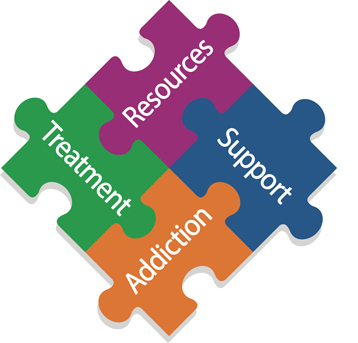Cognitive-focused Cognitive Behavioral Therapy (CBT) is a key component of many recovery plans.
Key Types of Addiction Treatment: Navigating Alcohol Dependency Recovery With Evidence-Based Practices
In the realm of alcohol addiction healing, the combination of Cognitive-Behavioral Therapies (CBT) and Medication-Assisted Treatment (MAT) marks an essential stride towards effectiveness and patient-centered care. CBT provides a structured path to reframe detrimental idea patterns, while MAT offers a biochemical foothold against the physical adversities of withdrawal. When these evidence-based techniques are supplemented with all natural techniques, such as mindfulness and nutritional support, they form a durable structure for therapy. The journey through these methods offers special challenges and end results, laying bare the concern of exactly how these treatments concretely intersect to foster continual healing.

Understanding Cognitive-Behavioral Treatments in Alcohol Dependency Healing
As alcohol dependency recovery develops, cognitive-behavioral treatments (CBT) have emerged as a foundation in reliable treatment strategies. meth addiction treatment. Treatment focuses on determining these adverse patterns and teaching individuals exactly how to test and change them with even more constructive thinking. The adaptable nature of CBT permits it to be customized to the unique needs of each individual, improving its performance in the world of alcohol recovery.

The Duty of Medication-Assisted Treatment in Taking Care Of Withdrawal and Cravings
Medication-assisted therapy (MAT) plays an important role in the management of withdrawal signs and desires in individuals recuperating from alcoholism. MAT includes using FDA-approved medications such as naltrexone, disulfiram, and acamprosate, which help in reducing the physical and psychological urges to drink, promoting a smoother and much more workable detoxing procedure. These medications operate by changing mind Your Domain Name chemistry to lessen the gratifying impacts of alcohol, maintain mood swings, and decrease physiological reliance. This medicinal strategy, when combined with counseling and behavioral therapies, enhances the possibilities of long-lasting healing. Such integration sustains the retention in treatment programs and contributes dramatically to stop regression, marking MAT as a keystone of reliable alcohol dependency therapy.

Integrating Alternative Methods With Conventional Therapies for Comprehensive Treatment
While medication-assisted treatment gives a foundational strategy to alcohol healing, incorporating holistic methods with standard treatments provides an extra comprehensive care version. This synthesis enables the therapy of the entire individual, attending to not only the physical elements of dependency however also the psychological, psychological, and spiritual measurements. Methods such as mindfulness, yoga, and acupuncture enhance cognitive-behavioral therapy (CBT) and group sessions, sustaining anxiety reduction and from this source psychological guideline. Nutrition and workout programs additionally enhance physical health and strength. By integrating these diverse strategies, treatment programs can customize treatments to individual demands, promoting a more lasting recovery. This incorporated technique underscores the value of a diverse strategy in the efficient therapy of alcoholism.
Final Thought
To conclude, efficient alcohol dependency healing leverages a mix of evidence-based methods. Cognitive-Behavioral Therapies reframe unfavorable reasoning, while Medication-Assisted Treatment deals index with the physical difficulties of withdrawal and yearnings. Integrating holistic methods, such as mindfulness and proper nourishment, with typical treatments ensures a comprehensive care approach. Customized to specific requirements and sustained in time, these techniques collectively boost the chance of continual sobriety and total wellness in recovering individuals. meth addiction treatment.